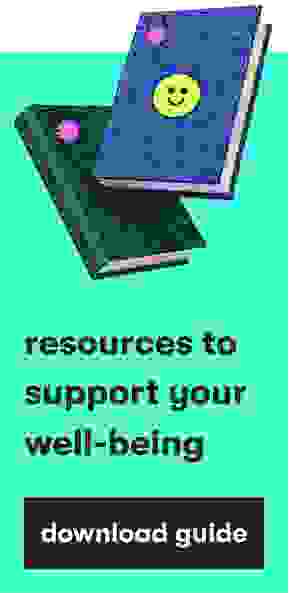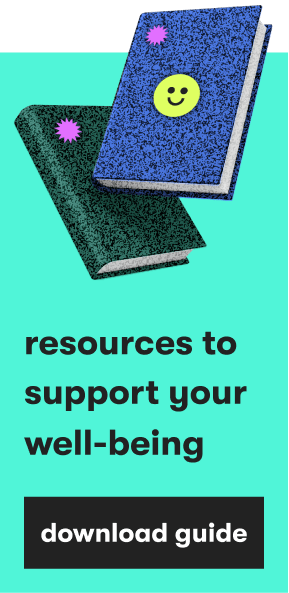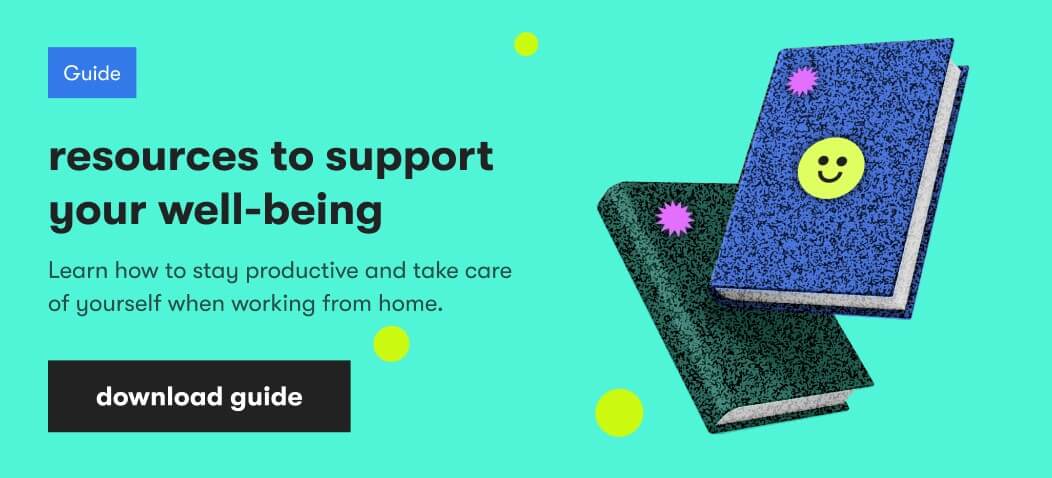Although burnout is not new, its increasing prevalence is particularly worrisome today. COVID-19 forced people and businesses worldwide to rethink how we work and cope with many unique stressors and concerns. At this complicated time, we have to draw the line between work and private life, and put effort into maintaining that line. Again and again.
If ignored or overlooked, burnout can throw you off track, make you miss important life moments, require burnout treatment, and substantially reduce your quality of life and that of your loved ones.
So, is it worth educating yourself about causes, symptoms, and ways to overcome burnout? We believe it is.
EPAM Anywhere is 2,000+ remote IT specialists worldwide, some of whom, like so many other people striving for achievement, have had to manage burnout from time to time. In this guide, we’ve compiled our accumulated knowledge and experience to share with you, because we care.
Burnout definition
The World Health Organization (WHO) defines burnout as
A syndrome conceptualized as resulting from chronic workplace stress that has not been successfully managed. It is characterized by three dimensions: 1) feelings of energy depletion or exhaustion; 2) increased mental distance from one’s job, and) reduced professional efficacy.
In simple words, burnout is a state that experiences a person who has been stressed for an extended time but failed to successfully manage it. As a result, this person is no longer capable of recharging their energy, mentally engaging in their jobs, or showing professional efficiency.
Dealing with burnout: know its causes
Take away the cause, and the effect ceases.
You can clean up the mess in your apartment 1,000 times, but as long as you continue throwing your clothes all over the place – nothing will change. The same may be said for dealing with burnout. Unless you understand its causes, and take some steps to break the cycle of burnout-inducing behaviours, you're at risk of being trapped in a long-term, energy-sapping struggle. So, the first step to overcome burnout is to identify its causes. Below are some of the most common.
1. Addiction to work
The emphasis on "busyness" is ubiquitous these days. Always having that red "busy" status in your corporate messenger is considered cool. A green status during off-work hours tells everybody you're really dedicated, really productive, and really efficient. As a result, people are hesitant about being offline during off-work hours or allowing themselves to take small breaks during their working day. People work more without necessarily delivering more value.

This might be okay if the pressure to appear busy at all times was merely temporary and would resolve itself, BUT instead, it can result in chronic fatigue, insomnia, mood swings, and even depression. A huge price to pay for the illusion of high performance.
So, take steps now to stop thinking exclusively about work and finally be where you are! Stick to your established working hours, add in some breaks and more off-work activities, or even take a vacation. If you take even small steps, you can see your life change for the better.
2. Workplace stress
If we return to the burnout definition, we see that the first factor the WHO highlights is chronic workplace stress. There are many potential causes of stress at work.
Accurate identification of your stressors can have a HUGE impact on your attempt to manage workplace stress (cause and effect, remember?). These may include obvious things like long working hours, tight deadlines, and poor management. There are also less obvious stressors like unclear responsibilities, inadequate communication of expectations, role conflict, and many more. It's essential to clearly identify your stressors to effectively deal with them.
3. Uneasy relationship with your boss
We guess that some of you have your own stories of dealing with a difficult boss or suspecting your boss wants you to leave. Unfortunately, Disney-style happy endings are not as common as we would hope. It’s important to try and find ways to deal with the situation, though – who wants to see their career ruined because they can’t effectively work with another person?
Check in with yourself: are you the only person who has troubles with your boss? Is it possible that you simply don’t like your boss? Can it be that your boss feels threatened by you? If your answers to both of those questions are “No”, there are at least 8 strategies that can help you find a way out – ranging from empathizing and focusing on the positive to quitting. You are the only one who can decide which strategy to choose, but it’s worth knowing all of them.
4. Some less obvious causes that can result in burnout
There may be hundreds of causes that contribute to burnout. All are specific to each person's mindset, lifestyle, and personality. Some people find it incredibly stressful to waste 2 hours on daily commuting, while others perceive that time as their opportunity for relaxation and solitude.
Some causes of burnout negatively affect the well-being of most people who experience them, causing them to wonder how to deal with burnout?. These include things like excessive workload (or, its opposite case, the absence of challenges), social isolation, lack of control over work and life, dearth of support, etc. It helps to clearly identify all of your stressors to most effectively balance your life.
Identifying burnout symptoms as your second step towards burnout treatment
Many of us will experience physical symptoms like headaches and lack of energy from time to time. And that's okay. We all feel tired or “less than 100%” sometimes. It is NOT okay when your physical symptoms intensify, occur regularly or are combined with “uncomfortable” states like:
- feeling stuck
- feeling exhausted
- being constantly bored
- having difficulty sleeping
- experiencing a decrease in your immunity
These symptoms, alone or in combination, are a warning sign that you should check in with yourself to better understand what’s going on, re-evaluate your situation, and get the support that you need
Identify your stage of burnout
The challenge is that you can easily fail to notice your burnout until it reaches a more extreme stage. Have you ever associated excitement with burnout? We guess not. To avoid having burnout reach an extreme stage, it’s essential to know how it starts and evolves. Psychologists suggest that there may be as many as 5 to 11 stages of life burnout. In order to choose the right strategy for dealing with burnout, it’s essential to understand how it progresses.
How to deal with burnout
Now, we're closer to formulating strategies for dealing with burnout. Let's review some techniques and approaches that can help you pave your way to a burnout-free life.
1. Find ways to address your stress
Stress is a routine part of our daily work and life. It can be positive (just remind yourself of the last time some good news made your heart beat like you were on a roller-coaster) and negative (remember your state if you've just made a big mistake at work, heard bad news, or experienced a significant conflict with somebody).

To successfully deal with burnout, you need to avoid transforming temporary negative workplace stress into a chronic state. Start by identifying your stressors. Ask yourself, "what exactly makes me feel badly stressed?" If the answer is a particular person, you might need to rethink your interactions. Or perhaps you need to take a closer look at your work-life balance – maybe your schedule is organized in a way that doesn't allow you to unplug. To develop your strategy for coping with burnout, take one step at a time, and ask for help whenever necessary.
2. Fight your boredom
Interestingly, feeling bored at work is simultaneously a cause and symptom of life burnout. The good news is that there are some relatively simple ways to address it. First, as always, identify why you feel bored. Maybe you lack challenges, opportunities for professional development, or your work hardly ever gets rewarded? Depending on your reason for boredom, you might need to:
- take microlearning courses; this way, you won't be stressed by a commitment to long-term training but will be able to build new competencies and, possibly, even find new interests
- automate repetitive tasks; it's incredible how much time and energy you can save by automating your routine actions and building effective processes for more complex tasks
- switch activities and focus to stay fresh and motivated but not worn out
- take a deep dive into more tips; there are many techniques for dealing with burnout, so why not get a sense of all of them?
3. Don’t let a depressing job spin you down
Many of us feel down at work from time to time. But there is a difference between feeling down and experiencing clinical depression - a serious disease that requires medical treatment.

If you feel less productive and more anxious than you've ever been, if you experience health issues like headaches, insomnia, or upset stomach, if the number of your out-of-office days is increasing – these are warning signs that you might be heading for depression.
Don't ignore the symptoms. Take action. Learn to focus on the positive, talk to your supervisor, ask for support, and make necessary changes. It’s critical to be honest with yourself. Don't compromise your personal health and wellbeing for the sake of a project or business success.
4. Сhange your approach to work and life
No doubt, a career is one of the central components of our lives. We put lots of our talent, hard work, and dedication into achieving meaningful results and actualizing ourselves. And that's great as long as it doesn’t hurt you or make you search “How to deal with burnout” in Google.
In today's relentless race for success, we often fail to identify when we need to take a break. Unfortunately, we may also ignore our life outside work, which can be especially true in the era of fully remote work. The truth is that lots of people develop the sense that something is wrong only after this “something” becomes a significant problem.
If you feel that work has started to displace your private life, or you’re already compromising your free time to accomplish yet another work task, it’s time to rethink your approach. Set limits on your work and job responsibilities, schedule your availability and stick to it. As our colleague so accurately says:
Money does not buy health, family and emotional wellbeing.

5. Quit!
Okay, this is a dramatic step, but it’s important to realize that there are times when it’s just impossible to deal with burnout, and maintain balance and personal wellbeing, while working at an unfavorable company. If you find yourself in this situation, it may be that the only way to deal with it is to change your job. If any of the following is true for you, you might need to consider a job change:
- you can’t remember the last time you woke up in a good mood and looking forward to your working day
- you got trapped into a routine that feels relentless and you don’t see a way out
- it's challenging to work together with your boss, and no matter what you try, things seem to get worse, not better
- your working environment is unhealthy
And don’t hesitate to consider a job change if you have even more reasons than that.
Know how to avoid burnout
Miguel de Cervantes
Burnout, with all of its different stages, unpleasant symptoms, and complex approaches to healing, can do a lot of harm to your career and life, isn't it wise to learn about ways to avoid it?
Fortunately, there are many tips for improved physical health, mental state, and lifestyle that, once implemented, can help make sure you never have to ask yourself how to cure burnout.
Take care of your body, your mind, and your life. Follow a healthy diet suitable for you, do at least some exercise, and, of course, get sufficient quality sleep (spoiler – you'll need to turn your phone off). And don't forget to regularly rest your brain using meditation, breathing techniques, or anything else that relaxes you.
Making your work and life comfortable requires effort and willpower. You can start by taking small steps in various spheres of your life, starting from organizing your workplace in a way that won't hurt your back to planning your tasks so that you have time for your personal life. We want you to make sure that you won’t need to puzzle out how to cure burnout.
Vetted resources for your well-being
test

As Chief Editor, Darya works with our top technical and career experts at EPAM Anywhere to share their insights with our global audience. With 12+ years in digital communications, she’s happy to help job seekers make the best of remote work opportunities and build a fulfilling career in tech.
As Chief Editor, Darya works with our top technical and career experts at EPAM Anywhere to share their insights with our global audience. With 12+ years in digital communications, she’s happy to help job seekers make the best of remote work opportunities and build a fulfilling career in tech.
Explore our Editorial Policy to learn more about our standards for content creation.
read more










.jpg)

















